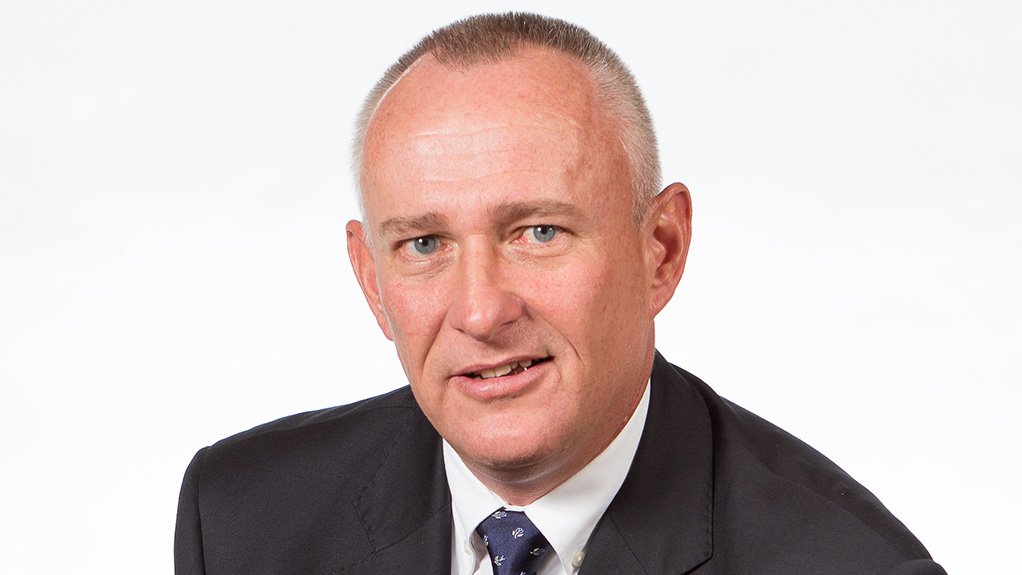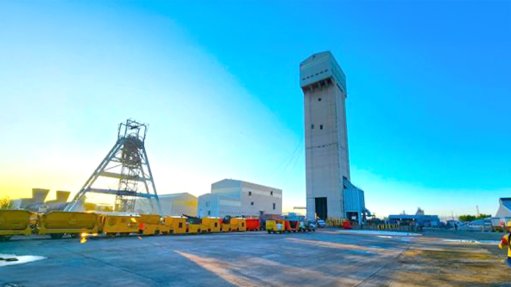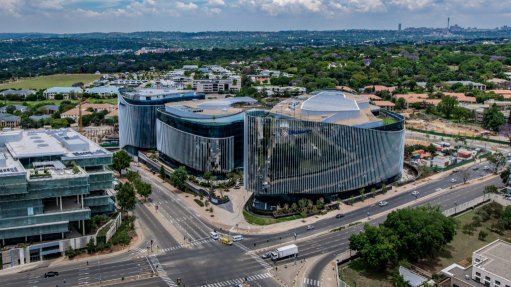Growthpoint delivers encouraging results despite tough interim period
Despite a tough operating period, JSE-listed Growthpoint Properties delivered a 17.6% increase in South African real estate investment trust (Reit) funds from operations and a 5.2% increase in distributable income a share of 76.9c for the six months to December 31, 2021.
It also declared an improved interim dividend of 61.5c a share.
“It's clear that South Africa as an economy still struggling. We haven't quite reached pre-Covid-19 levels. Only towards the end of this year, moving into 2023, are we likely to get back up to pre-Covid-19 levels in terms of economic growth,” said Growthpoint group CEO Norbert Sasse on March 16.
During the period under review, Growthpoint provided rental relief of R17.3-million to its tenants, with R5.2-million in deferred rent and R12.1-million of rental discounts.
The company said it had recovered R8.4-million of deferred rent in the period and had incurred R1.2-million in Covid-19-related expenses.
Meanwhile, Growthpoint reported having recovered 92.4% of the rand amount of total deferrals granted since the start of the pandemic.
Overall, Growthpoint’s revenue decreased by 4.8% to R6.38-billion compared with R6.70-billion for the comparative period at the end of 2020. Operating profit also decreased by 4.3% year-on-year to R4.24-billion, while headline earnings a share decreased by 23.4% to 56.55c compared with 73.84c the year before.
Sasse highlighted the improved performance of the Victoria and Alfred (V&A) Waterfront in Cape Town as an example of the way things seem to be improving.
“The strong recovery of the V&A Waterfront, although hampered by the disappointing reaction to the Omicron variant, which isolated South Africa from international tourism in December, has the potential to continue as more foreign tourists, conferences and convention events return,” Sasse said.
He noted that, in previous years, the V&A Waterfront was a standout performer for the group. However, owing to its strong reliance on international and local tourism, along with its heavy weighting towards the local hotel, retail and restaurant trade, the V&A suffered disproportionately to the rest of Growthpoint’s South African portfolio, with its contribution to distributable income dropping to R172.8-million a year ago.
Highly dependent on international tourism, the V&A’s hotels operated at 50% of pre-Covid-19 levels during the period. International passengers coming through Cape Town’s airport had only recovered to 27% of normal levels by the end of last year.
Growthpoint reported an improvement of 54.8% to R267.5-million at the end of last year compared with same period in 2020, as lockdown restrictions were lifted and tourism resumed.
“We feel like we've really turned the corner on things and are now in an upward trajectory,” Sasse commented.
Growthpoint’s increase in Reit funds was attributed to the group having acquired a 16.8% shareholding in the newly launched Growthpoint Student Accommodation Holdings (GSAH) as part of the group’s funds management business Growthpoint Investment Partners. GSAH owns seven purpose-built student accommodation properties with 4 979 beds valued at R2-billion.
The launch of GSAH attracted R1.2-billion in investments from third-party investors. In addition, Growthpoint invested R240-million of its own capital into the fund. The group said it believed that there was a significant pipeline of both acquisitions and greenfield developments within the GSAH’s gambit moving forward.
Growthpoint owns and manages 407 retail, office and industrial properties across South Africa valued at R64.7-billion, which devalued by 0.4% over the period. Growthpoint believed this indicated a possible stabilisation in the group’s South African property values.
While the group manages these assets to optimise their value over the long term, it also seeks to sell noncore assets and recycle the capital. As such, the group sold 19 properties for R1-billion during the period, taking the total of properties it has sold in South Africa to R8.6-billion since 2017.
Growthpoint reported that its South African portfolio delivered a decreased contribution to the half-year results.
Vacancies in South Africa reduced from 11.6% to 10.5% over the six months, with more than 758 600 m2 let during the period. Its renewal success rate improved from 65.4% to 77.3% during the period, but this was achieved at the expense of rental growth. Rental renewal rates decreased by -0.2% to -15.1% but have started to show some stability, Sasse noted.
Growthpoint’s retail portfolio vacancies improved to 3.8%, excluding offices, with increased letting activity from national retailers.
The group said that, during the period, retailers continued to restructure their portfolios, right-size their spaces and rebase rentals. As a result, Growthpoint’s portfolio enjoyed improved renewal success, albeit at the expense of rental growth and yearly escalation levels.
Its shopping centres saw a 7% increase in average trading density, with smaller community and convenience centres leading the rebound. Sasse noted that shopper basket sizes have increased because turnovers have recovered faster than footcount levels.
The group also reported that local office vacancies appeared to be levelling off across the portfolio, with more tenants returning to the office and hybrid working arrangements proving more sustainable than work-from-home.
The group noted that enquiries for office space had increased and that tenants were willing to trade up for space in more efficient, sustainable buildings. Notwithstanding, office vacancies remained at 21.2%, which continued to place renewal rates, rentals and escalations under pressure.
“Our South African business is well positioned with a strong balance sheet, which is critical considering the global volatility, geopolitical tensions and weak macro-environment placing ongoing pressure on domestic property fundamentals. [However], with poor economic growth in South Africa, still below pre-Covid-19 levels, our local growth prospects remain constrained,” Sasse noted.
GLOBAL OPERATIONS
Growthpoint’s international investments represent 43.1% of property assets by book value and 28.0% of earnings before interest and tax.
The group owns 57 office and industrial properties in Australia valued at R58.5-billion through a 62.2% holding in Growthpoint Properties Australia (GOZ). The GOZ portfolio increased by 11.1% during the period, driven by leasing success, yield compression and rent growth across the portfolio, boasting a 98.8% occupation with quality tenants and achieving a 93% tenant retention rate.
“GOZ . . . is seeking access to acquisition, funds management and merger and acquisition opportunities,” Sasse said, noting that this was on the back of the positive performance during the period.
Through its 29.4% investment in London-listed Globalworth Real Estate Investments (GWI), Growthpoint also owns an interest in 66 office and light industrial properties valued at R57.3-billion in Romania and Poland, with Growthpoint’s share valued at R16.9-billion.
Mainly owing to high levels of cash, GWI spent the period under review focusing its capital on improving its tenant spaces and growing through low-risk acquisitions and developments.
It has five light logistics facilities of a combined 98 900 m2 under development in Romania and is refurbishing two mixed-use properties of 75 000 m2 in Poland.
GWI reported an 11.5% vacancy rate and let more than 91 000 m2 in the six months.
“GWI’s portfolio metrics continue to outperform those of our South African portfolio. With strong demand from multinational tenants and limited retail exposure, it was relatively unaffected by the pandemic. Its balance sheet is strong, but its large cash holding continues to dilute earnings, and we are seeking ways to maximise this investment,” Sasse added.
Growthpoint also owns seven community shopping centres in the UK valued at R11.3-billion through its 60.8% investment in LSE- and JSE-listed UK Reit Capital and Regional (C&R).
“C&R is in a stronger financial position with . . . good occupancy, solid letting, and robust income. The retail property sector is showing a promising pick-up in investment activity with signs that market values in the UK have stabilised,” Sasse said.
He noted that Growthpoint was cautiously optimistic about the increased stability and potential for improvement.
“We are ready to optimise the advantages we have created for our business and advance our strategic priorities to achieve sustainable performance,” Sasse concluded.
Article Enquiry
Email Article
Save Article
Feedback
To advertise email advertising@creamermedia.co.za or click here
Comments
Announcements
What's On
Subscribe to improve your user experience...
Option 1 (equivalent of R125 a month):
Receive a weekly copy of Creamer Media's Engineering News & Mining Weekly magazine
(print copy for those in South Africa and e-magazine for those outside of South Africa)
Receive daily email newsletters
Access to full search results
Access archive of magazine back copies
Access to Projects in Progress
Access to ONE Research Report of your choice in PDF format
Option 2 (equivalent of R375 a month):
All benefits from Option 1
PLUS
Access to Creamer Media's Research Channel Africa for ALL Research Reports, in PDF format, on various industrial and mining sectors
including Electricity; Water; Energy Transition; Hydrogen; Roads, Rail and Ports; Coal; Gold; Platinum; Battery Metals; etc.
Already a subscriber?
Forgotten your password?
Receive weekly copy of Creamer Media's Engineering News & Mining Weekly magazine (print copy for those in South Africa and e-magazine for those outside of South Africa)
➕
Recieve daily email newsletters
➕
Access to full search results
➕
Access archive of magazine back copies
➕
Access to Projects in Progress
➕
Access to ONE Research Report of your choice in PDF format
RESEARCH CHANNEL AFRICA
R4500 (equivalent of R375 a month)
SUBSCRIBEAll benefits from Option 1
➕
Access to Creamer Media's Research Channel Africa for ALL Research Reports on various industrial and mining sectors, in PDF format, including on:
Electricity
➕
Water
➕
Energy Transition
➕
Hydrogen
➕
Roads, Rail and Ports
➕
Coal
➕
Gold
➕
Platinum
➕
Battery Metals
➕
etc.
Receive all benefits from Option 1 or Option 2 delivered to numerous people at your company
➕
Multiple User names and Passwords for simultaneous log-ins
➕
Intranet integration access to all in your organisation





















